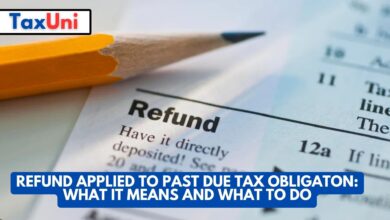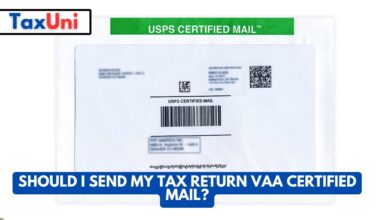How Resellers Can Properly Claim Taxes: A Comprehensive Guide for Sellers
This article provides resellers with step-by-step guidance on how to properly claim taxes, offering insights into sales tax collection, tax deductions, and how to navigate tax filing for your business. Whether you're selling online or through physical stores, this guide will help ensure you're compliant with tax regulations while maximizing deductions.

Contents
As a reseller, one of the most important aspects of running your business is understanding how to claim taxes. Whether you’re selling products online, at local markets, or through a brick-and-mortar store, knowing your tax responsibilities can be complicated, but it’s essential for the success and legality of your business. Many resellers often ask, “How can I properly claim taxes?” and “What tax obligations do I have when selling products?” In this article, we will answer these questions and more by providing a comprehensive guide on how to claim taxes as a reseller. From sales tax collection to deducting business expenses and navigating tax filing, this article will equip you with the knowledge to confidently handle your taxes and avoid potential mistakes that could cost you money or lead to penalties.
Sales Tax Obligations for Resellers
As a reseller, you are required to collect sales tax on the goods you sell, but not every transaction is taxable. The first thing you need to understand is whether you have a sales tax nexus in a given state or region. Nexus refers to the connection between your business and a state that triggers a sales tax obligation. If you have a physical presence (like a storefront, warehouse, or employees) in a state, you are likely required to collect sales tax on sales made to customers in that state. Additionally, many states have economic nexus laws, which require businesses that exceed a certain level of sales or transactions to collect sales tax, even if they don’t have a physical presence there.
Once you’ve determined where you need to collect sales tax, you’ll need to register for a sales tax permit in those states. This registration will allow you to legally collect sales tax from customers, and it will also provide you with a sales tax ID number that you’ll need when filing taxes. Keep in mind that different states have different rules regarding sales tax rates, exemptions, and filing schedules, so it’s crucial to research the specific requirements of each state where you conduct business.
How to Track and Report Sales Tax
Tracking your sales tax can be a daunting task, especially if you’re selling across multiple states with varying tax rates. Fortunately, there are several tools and software options that can help automate the process. Platforms like Shopify, Amazon, and eBay often have built-in systems that automatically calculate and collect sales tax based on the buyer’s location. Additionally, you can integrate sales tax software such as TaxJar or Avalara with your online store to help streamline the process.
It’s essential to keep accurate records of your sales and the sales tax you collect. This includes documenting the total amount of sales, the tax collected, and any tax exemptions (for example, if a customer has a resale certificate). At the end of the tax period (usually quarterly or annually), you’ll need to file your sales tax returns with each state where you collect sales tax. These returns will report the amount of sales tax you’ve collected and remit the appropriate amount to the state.
Sales Tax Exemptions and Resale Certificates
As a reseller, you may be eligible for certain sales tax exemptions. For instance, if you are purchasing inventory that you intend to resell, you generally don’t have to pay sales tax on those items. To claim this exemption, you’ll need to obtain a resale certificate. This document allows you to buy goods for resale without paying sales tax at the time of purchase.
A resale certificate is issued by the state where your business is located, and each state has its own process for obtaining one. When you make purchases from wholesalers or manufacturers, you’ll need to present your resale certificate to avoid paying sales tax. However, you should only use this exemption for items that are resold directly to customers — if you use the items for personal use or for something other than resale, you may be required to pay sales tax on those purchases.

Deductions for Resellers
In addition to managing sales tax, resellers can also take advantage of various business deductions to lower their taxable income. These deductions can help reduce the amount of taxes you owe, which is especially important for small business owners operating on tight margins. Some common deductions include:
- Inventory: If you purchase goods for resale, the cost of that inventory is typically deductible when sold.
- Business Expenses: You can deduct the costs of doing business, such as shipping fees, office supplies, advertising, and software subscriptions.
- Home Office Deduction: If you operate your business from home, you may be able to deduct a portion of your home expenses, such as rent, utilities, and internet costs.
- Vehicle Expenses: If you use your car for business purposes (e.g., delivering goods or attending trade shows), you may be able to deduct vehicle-related expenses.
It’s important to keep detailed records of your business expenses throughout the year. Many resellers underestimate the value of deductions available to them, which could lead to higher tax bills than necessary.
Filing Your Taxes as a Reseller
Filing taxes as a reseller involves reporting your sales and income to the appropriate tax authorities. In addition to sales tax, resellers need to report their business income on their income tax returns. This includes profits from selling goods, as well as any other income your business might generate.
If you’re a sole proprietor, you’ll typically file your taxes using a Schedule C (Profit or Loss from Business) along with your Form 1040 (U.S. Individual Income Tax Return). If your business is structured as an LLC, partnership, or corporation, your tax filing process will differ, and you may need to file additional forms. You’ll also need to account for any self-employment taxes if your business is a sole proprietorship or partnership.
It’s highly recommended to work with a tax professional who specializes in small businesses or e-commerce to ensure you’re compliant and taking advantage of all available deductions.
Conclusion
In conclusion, knowing how to properly claim taxes as a reseller is crucial for maintaining compliance and avoiding unnecessary tax penalties. From collecting and remitting sales tax to claiming deductions and reporting business income, there are many moving parts to consider. By staying organized, using the right tools, and keeping accurate records, you can ensure that your business remains on the right side of tax laws. Remember to consult a tax professional when necessary, as they can help guide you through the complexities of tax filing and make sure you’re maximizing your savings.
By understanding your tax obligations, claiming the right exemptions, and tracking your expenses, you can keep your reseller business running smoothly and avoid any unwanted tax surprises.





